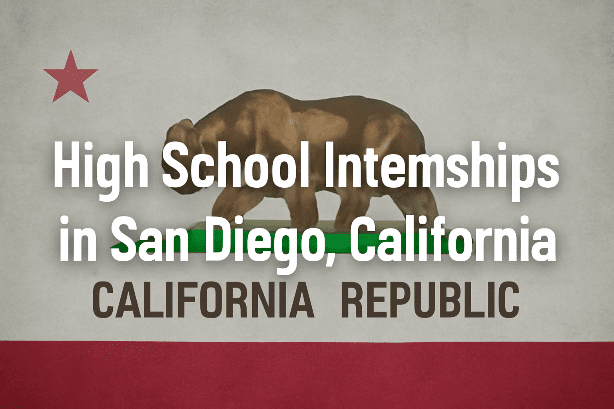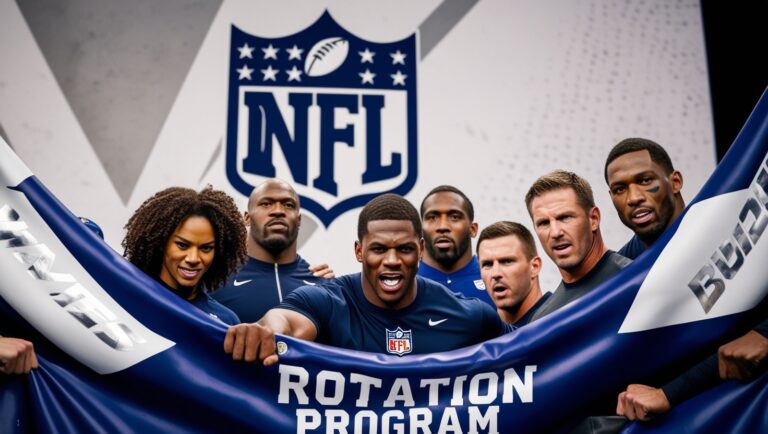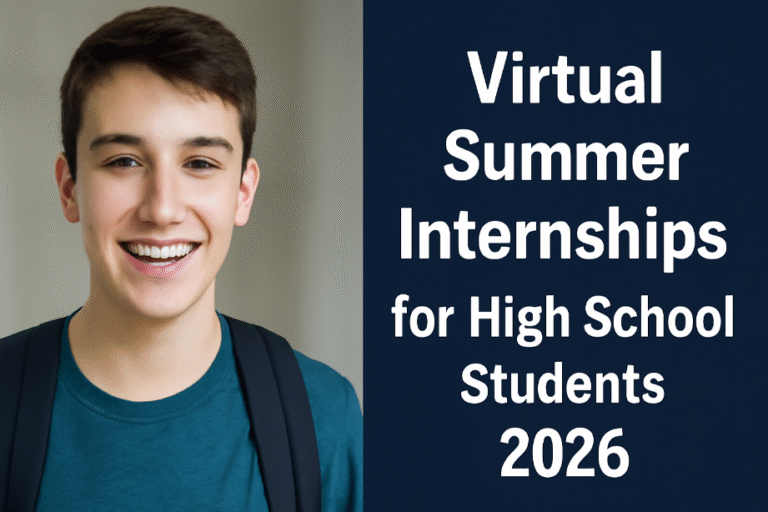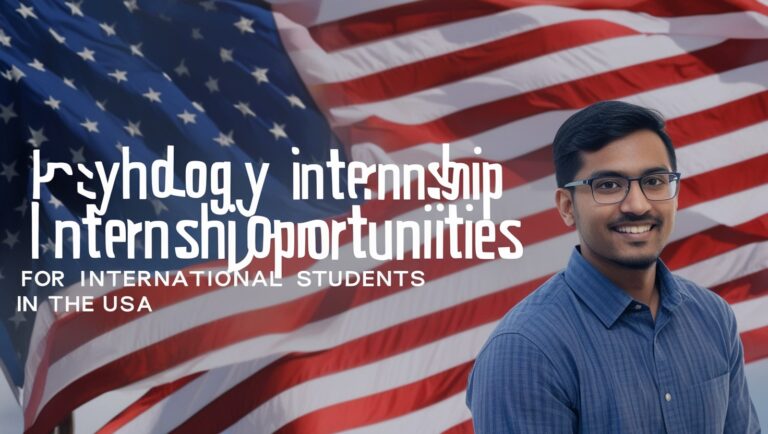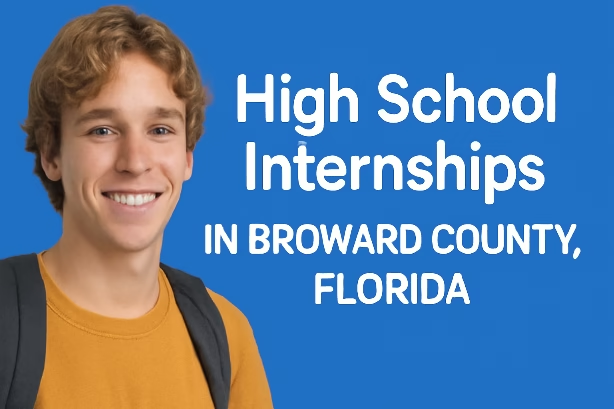Top 15 Best High School Internships in Washington, DC 2026
The Nation’s Capital as Your Career Launchpad
Washington, DC stands unparalleled as America’s hub for government, policy, international relations, and public service careers. Internships for high school students in Washington, DC offer unmatched access to federal agencies, world-renowned museums, congressional offices, international organizations, advocacy groups, and think tanks that shape national and global policy. From working alongside scientists at the Smithsonian Institution to supporting legislative work in Senate offices, engaging with public health initiatives at federal agencies, or contributing to social justice through Urban Alliance’s paid internship program, the nation’s capital delivers career experiences impossible to replicate elsewhere.
DC’s concentration of government buildings along the National Mall, diplomatic missions in Embassy Row, policy organizations in Dupont Circle, and cultural institutions spanning from Capitol Hill to Georgetown creates an ecosystem where high school students can explore careers in law, politics, international affairs, STEM research, museum education, public health, and nonprofit management. The city’s metro system connects every major employment center, making professional opportunities accessible to students throughout the DMV (DC-Maryland-Virginia) region.
15 Premier High School Internships in Washington, DC 2026
1. DC Department of Employment Services (DOES) High School Internship Program
- Organization: DC Government – Department of Employment Services
- Description: Comprehensive work-readiness program providing project-based learning, leadership development, and paid work placements for District youth. Program includes professional skills training, college/career guidance, financial literacy education, and placement with DC government agencies, nonprofits, and private employers across multiple sectors.
- Eligibility: DC residents ages 14-21, currently enrolled in DC schools or homeschool programs
- Duration: Summer and year-round placements (6-8 weeks typical)
- Compensation: Paid – DC minimum wage ($17.00/hour in 2026)
- Deadline: Rolling applications with priority periods in February-March for summer
- Apply: DOES HSIP Website
2. Urban Alliance High School Internship Program – DC
- Organization: Urban Alliance
- Description: Nine-month paid internship program combining professional development training with workplace experience for high school seniors. Students work 12-15 hours weekly during school year and full-time during summer with corporate, government, nonprofit, and healthcare employers. Includes one-on-one mentorship, college prep support, resume building, interview coaching, and workplace etiquette training. Program emphasizes career pathways for underrepresented students.
- Eligibility: High school seniors from DC public and charter schools, focus on students facing barriers to employment
- Duration: 9 months (September – May), includes summer component
- Compensation: Paid – competitive hourly wage
- Deadline: Spring 2026 for Fall 2026 cohort
- Apply: Urban Alliance DC
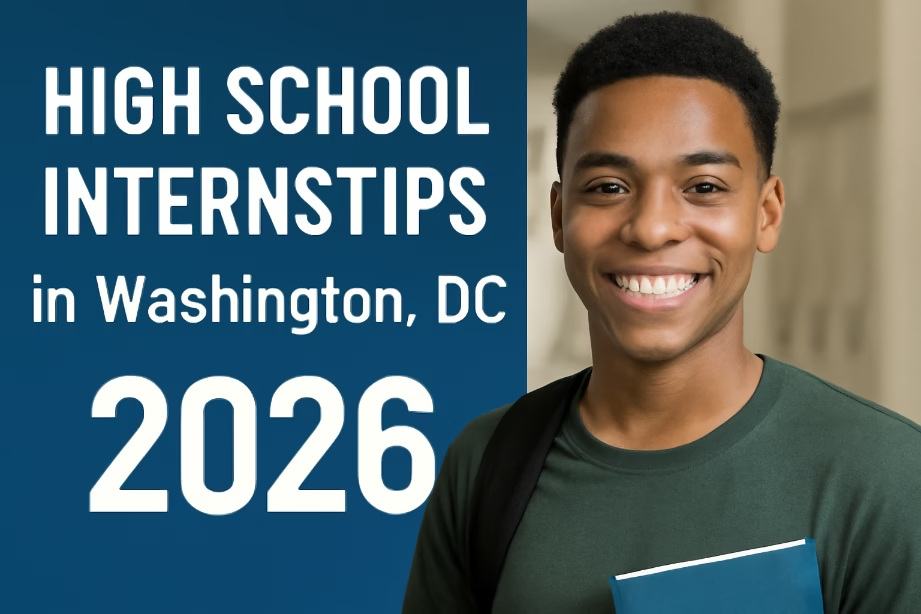
3. Smithsonian National Museum of Natural History High School Internship
- Organization: Smithsonian Institution – NMNH
- Description: Six-week summer internship providing hands-on museum experience in natural history, science education, and museum operations. Students work with research scientists, educators, and collections specialists on real projects supporting museum missions. Activities include specimen preparation, educational programming, visitor engagement, digital collections work, and research support. Weekly professional development sessions cover museum careers and science communication.
- Eligibility: Currently enrolled high school students ages 14-18, fluent English required
- Duration: 6 weeks summer (June-July), Tuesday-Friday, 10am-4pm
- Compensation: Stipend provided
- Deadline: February 28, 2026
- Apply: NMNH High School Internship
4. Smithsonian National Zoo Youth Programs
- Organization: Smithsonian National Zoological Park
- Description: Animal care, conservation, and veterinary medicine internships for high school students and recent graduates. Opportunities span animal husbandry support, behavioral enrichment, conservation biology, veterinary services, IT systems, communications, nutrition research, and genetics. Work at DC Zoo campus or Conservation Biology Institute in Front Royal, VA. Some positions available remotely.
- Eligibility: High school students (seniors preferred) and recent graduates, strong science background
- Duration: Varies by position – summer intensive or academic year part-time
- Compensation: Most positions paid; some volunteer
- Deadline: Rolling by position, typically November-February
- Apply: Smithsonian Internships Portal
5. Smithsonian Air and Space Museum Explainers Program
- Organization: National Air and Space Museum (NASM)
- Description: Paid position hiring high school and college students as museum explainers who help visitors engage with aviation and space artifacts. Explainers facilitate hands-on demonstrations, answer visitor questions, interpret exhibits, and create personal connections with iconic objects including the Wright Flyer, Apollo spacecraft, and Mars rovers. Training provided in science communication and public engagement.
- Eligibility: High school students grades 9-11 and college students
- Duration: Academic year and summer schedules available, part-time
- Compensation: Paid hourly position
- Deadline: Applications typically open late winter/early spring
- Apply: Visit Smithsonian Youth Programs or NASM directly
6. U.S. Senate Page Program
- Organization: U.S. Senate
- Description: Elite residential program where high school juniors serve as Senate pages, delivering correspondence and legislative materials on Senate floor, preparing chamber for sessions, and supporting daily Senate operations. Pages live in supervised housing near Capitol Hill and attend special Senate Page School. Direct exposure to legislative process and federal government operations. Highly competitive with limited slots.
- Eligibility: High school juniors (16-17 years old), U.S. citizenship required, minimum 3.0 GPA
- Duration: Full semester (January-June or August-December)
- Compensation: Annual salary paid biweekly, housing and meals provided
- Deadline: Applications accepted year-round but fill quickly; apply 6+ months before desired session
- Apply: Contact U.S. Senator from home state directly
7. Congressional Office Internships
- Organization: Individual U.S. House and Senate offices
- Description: Legislative internships in congressional offices supporting constituent services, legislative research, policy analysis, press/communications, and administrative tasks. Responsibilities include answering phones, attending committee hearings, drafting correspondence, researching bills, and supporting staff on key initiatives. Most offices offer both DC and district office positions.
- Eligibility: High school students (primarily juniors/seniors), varies by office, often prefer constituents
- Duration: Summer (8-12 weeks) or semester (3-4 months), typically full-time or 30+ hours/week
- Compensation: Mostly unpaid (some offices offer stipends), college credit possible
- Deadline: Varies by office; many due November-February for summer
- Apply: Contact individual congressional offices via websites or Senate Employment Office
8. Library of Congress Junior Fellows Program
- Organization: Library of Congress
- Description: Highly selective summer program placing exceptional high school students in research and professional positions at world’s largest library. Junior Fellows work with librarians, curators, and researchers on collection development, digitization projects, research services, and preservation. Projects utilize LOC’s unparalleled collections spanning books, manuscripts, maps, photographs, and digital archives. Professional development includes seminars with library leadership and cultural events.
- Eligibility: Rising high school seniors, exceptional academic record (typically 3.8+ GPA), demonstrated research interests
- Duration: 6-8 weeks summer
- Compensation: Paid stipend
- Deadline: February-March (exact dates vary annually)
- Apply: Check Library of Congress Junior Fellows page or contact LOC internship coordinator
9. Office of the Comptroller of the Currency (OCC) High School Scholars Internship Program
- Organization: U.S. Treasury Department – OCC
- Description: Six-week paid banking regulation and financial services internship for students entering senior year and recent graduates. HSSIP provides exposure to federal banking supervision, financial policy, risk management, economics, and legal compliance. Students work alongside bank examiners, economists, and attorneys learning how federal government regulates national banking system. Professional development includes workshops on career planning and financial literacy.
- Eligibility: Students entering senior year or recent high school graduates, strong academic record, U.S. citizenship required
- Duration: 6 weeks (June-August)
- Compensation: Paid – competitive government rate
- Deadline: Early 2026 (typically January-February)
- Apply: OCC HSSIP Website
10. NASA Goddard Space Flight Center STEM Internships
- Organization: NASA Goddard Space Flight Center – Greenbelt, MD (DC metro)
- Description: Competitive aerospace engineering and space science internships at NASA’s premier Earth science, astrophysics, and planetary science center. High school students work on research projects supporting satellite missions, climate science, space exploration, engineering development, and data analysis. Mentored by NASA scientists and engineers on cutting-edge space technology.
- Eligibility: High school students (typically juniors/seniors), strong STEM academic record (3.5+ GPA), U.S. citizenship required
- Duration: Summer sessions (8-10 weeks) or semester placements
- Compensation: Paid stipend
- Deadline: Applications typically due November for summer; check NASA OSSI portal
- Apply: NASA Internship Portal (OSSI)
11. National Institutes of Health (NIH) High School Programs
- Organization: NIH – Bethesda, MD (DC metro)
- Description: Biomedical research internships at world’s largest medical research agency. High school students work in research laboratories studying cancer, infectious diseases, neuroscience, genetics, public health, and medical technology. Students contribute to active research projects, learn laboratory techniques, attend scientific seminars, and present research findings. Programs vary by NIH institute.
- Eligibility: High school students ages 16+, strong science grades, varies by specific program
- Duration: Summer (8-12 weeks) most common; some year-long opportunities
- Compensation: Most programs paid stipend
- Deadline: Varies by program; typically November-February
- Apply: NIH Training Center and individual institute websites
12. The Fund for American Studies (TFAS) Programs
- Organization: TFAS – George Mason University partnership
- Description: Residential summer programs combining academic coursework, professional internships, and housing in DC. Multiple tracks include Capitol Hill Internship Program (congressional placements), Economics and Government Program, Political Journalism Program, and others. Students earn college credit from GMU while interning with congressional offices, think tanks, media organizations, or advocacy groups.
- Eligibility: Primarily college students but some programs accept exceptional high school seniors
- Duration: 5-6 weeks summer
- Compensation: Fee-based program ($7,000-9,000) but scholarships available covering 80-100% of costs
- Deadline: Rolling applications with priority by February 1
- Apply: TFAS DC Internships
13. Smithsonian American Art Museum Youth Programs
- Organization: Smithsonian American Art Museum
- Description: Museum education and interpretation internships focusing on American art history, curatorial work, education programming, and visitor engagement. Students assist with gallery programs, special exhibitions, digital projects, archival research, and public programs. Exposure to museum careers spanning education, curation, conservation, and museum operations.
- Eligibility: High school students ages 15-18
- Duration: Summer programs (4-6 weeks) or academic year opportunities
- Compensation: Stipend provided for some programs
- Deadline: February-March for summer programs
- Apply: Smithsonian Internships Portal – search by museum
14. BroadFutures DC Internship Programs
- Organization: BroadFutures (formerly Women Entrepreneurs of Baltimore)
- Description: Career exploration internships connecting young women with employers across nonprofit, policy, hospitality, marketing, technology, and business sectors. Program includes professional development training, mentorship, career workshops, and paid work experience. Emphasis on building confidence, professional networks, and career clarity for women entering workforce.
- Eligibility: High school young women in DC/DMV area, various programs for different age groups
- Duration: Summer programs (6-8 weeks) and semester options
- Compensation: Stipends equal to at least DC minimum wage
- Deadline: October 24, 2025 for spring programs; spring deadlines for summer
- Apply: BroadFutures DC Internships
15. Smithsonian Center for Folklife and Cultural Heritage Internships
- Organization: Smithsonian Center for Folklife and Cultural Heritage
- Description: Cultural heritage and ethnographic internships exploring folklore, cultural anthropology, ethnomusicology, linguistics, museum studies, and arts administration. Work on Smithsonian Folklife Festival planning, cultural documentation projects, archival collections, digital exhibitions, and public programming. Available in-person in DC or remotely.
- Eligibility: High school students and college students, strong interest in cultural studies
- Duration: Flexible arrangements – summer, semester, or year-round
- Compensation: Varies by position
- Deadline: Rolling applications
- Apply: Smithsonian Folklife Center – search for Center for Folklife positions

How to Apply for DC Internships Successfully
Understanding DC’s Unique Internship Landscape
Washington, DC’s internship market differs significantly from other cities due to government concentration, security requirements, and competitive pool of applicants from across America seeking policy and government experience. Competition is intense for congressional offices, federal agencies (NASA, NIH, OCC), and elite programs (Senate Page, Library of Congress Junior Fellows). However, accessible opportunities exist through DC DOES, Urban Alliance, many Smithsonian museums, and nonprofit organizations.
Students should understand that many federal internships require U.S. citizenship for security clearances, particularly those involving sensitive government information. Additionally, “unpaid” congressional internships remain common despite reform efforts, though college credit and housing scholarships can offset costs.
For students exploring opportunities beyond DC, consider high school internships in Maryland for nearby federal agencies or high school internships in Delaware for corporate headquarters.
Critical Application Timeline for DC Programs
September – October 2025: Research opportunities and begin document preparation. Start identifying congressional representatives and senators for office internships. For additional East Coast opportunities, explore high school internships in NYC and high school internships in Jersey City.
November 2025 – January 2026: NASA Goddard and NIH applications typically open in November with deadlines in November-January for summer programs. Begin outreach to congressional offices for summer 2026 internships. Most federal agencies post spring semester internship opportunities.
February 2026: Peak application season. Major deadlines include Smithsonian NMNH (February 28), Library of Congress Junior Fellows (early-mid February), OCC HSSIP (mid-February), TFAS programs (priority by February 1), and Smithsonian museum programs. DC DOES opens priority application windows.
March – April 2026: Final deadlines for summer programs. BroadFutures summer applications due. Congressional offices continue accepting applications on rolling basis but positions filling rapidly.
May – August 2026: Begin internships, attend orientations, and engage in professional development activities across DC.
Required Application Materials
Resume (Essential): One-page document highlighting academic achievements, leadership roles, volunteer work, relevant coursework (government, AP US History, AP Government & Politics), and any prior work experience. Quantify accomplishments and emphasize skills relevant to government/policy work (research, writing, public speaking).
Cover Letter (Critical for competitive positions): 300-500 word letter customized for each opportunity explaining specific interest in organization, relevant qualifications, and career goals. For congressional offices, explain connection to district/state and specific policy interests. For Smithsonian, discuss passion for specific museum focus. For federal agencies, highlight STEM achievements or relevant interests.
Transcripts: Unofficial copies showing current GPA and coursework. Competitive programs (Senate Page, LOC Junior Fellows, NASA, NIH) typically require 3.5-3.8+ GPAs.
Letters of Recommendation: 2-3 letters from teachers (especially government, history, science teachers), counselors, or prior employers who can speak to academic abilities, character, and maturity. Request early (3-4 weeks before deadlines) with specific program information.
Writing Samples: Policy-oriented positions (congressional offices, think tanks) may request writing samples demonstrating research and analytical skills. Submit recent research papers, policy briefs, or analytical essays (typically 3-10 pages).
Security Documentation: Federal positions require U.S. citizenship verification, birth certificates, and sometimes security clearance paperwork. Be prepared to provide detailed background information for sensitive positions.
Work Permits: Students under 18 need work permits in many cases; check with school counselor for DC/Maryland/Virginia requirements.
Application Submission Methods
Online Portals (Most Common): Smithsonian Institution uses centralized portal (internships.si.edu) for all museums. NASA uses OSSI system. NIH has individual institute portals. Urban Alliance, OCC, and DC DOES have dedicated application systems. Create accounts early and save work frequently.
Direct Contact (Congressional Offices): Most congressional internships require direct outreach via email or through office websites. Visit house.gov or senate.gov, find your representative/senators, and locate their internship application pages. Many offices use online forms; others prefer emailed materials. Follow instructions exactly.
Through Schools: Some DC-area schools coordinate with local employers. Meet with school counselors or career coordinators for leads on school-based internship partnerships. This is especially valuable for DC public/charter school students accessing Urban Alliance or DC DOES programs.
Professional Networking: DC career fairs, policy conferences, and educational programs offer networking opportunities. The Washington Intern Student Housing (WISH) network and various youth leadership organizations can provide connections.
Strengthening DC Applications
Emphasize Civic Engagement: DC employers value demonstrated interest in government, policy, and public service. Highlight participation in student government, Model UN, debate team, mock trial, youth city councils, political campaigns, community organizing, or volunteer work addressing social issues.
Show Policy Knowledge: Research specific issues relevant to your target offices or agencies. For congressional internships, know key bills your representative/senator supports. For federal agencies, understand their missions and recent initiatives. Reference specific programs or policies in cover letters.
Highlight DC Connection (If Applicable): Local students have advantage for some DC DOES and Urban Alliance programs. If you’re from DMV region, emphasize community ties. If relocating, demonstrate serious commitment and address housing plans.
Demonstrate Maturity and Professionalism: Government work requires reliability, discretion, and professional demeanor. Emphasize qualities like punctuality, confidentiality, strong work ethic, and ability to work independently. Letters of recommendation should address maturity level.
Quantify Everything: Replace “interested in politics” with “organized voter registration drive registering 150+ eligible voters” or “founded school political discussion club growing from 8 to 45 members in one year.” Specific numbers demonstrate impact.
Address Security Requirements Proactively: For federal positions requiring U.S. citizenship, confirm eligibility early. Mention citizenship in cover letters if required. Be prepared for background checks and security clearance processes that can take weeks or months.
Tailor to Organization Type: Congressional offices value political awareness and constituent service orientation. Smithsonian museums want enthusiasm for their specific collections and missions. Federal agencies (NASA, NIH) prioritize STEM skills and research interests. Nonprofits (Urban Alliance, BroadFutures) value social justice commitment and community engagement.
Interview Preparation for DC Positions
DC interviews often involve behavioral questions and situational scenarios:
- Research thoroughly: Know organization’s mission, recent news, key leadership, and current initiatives. For congressional offices, know your representative’s/senator’s committee assignments, key legislation, and district priorities.
- Prepare policy questions: Show informed interest in substantive work. Ask about specific projects, policy areas, or organizational priorities.
- Professional attire: Business professional (suit and tie, professional dress/suit for women) expected for congressional and federal agency interviews. Business casual minimum for museums and nonprofits.
- Security awareness: Some positions involve confidential information. Demonstrate understanding of professional discretion and confidentiality.
- Metro knowledge: Know how to navigate DC Metro system and arrive on time. Many interviews occur in Capitol Hill, Federal Triangle, or Smithsonian buildings accessible via Metro.
- Political neutrality (where appropriate): While congressional offices are partisan, many federal agencies and Smithsonian positions require political neutrality. Frame answers appropriately for audience.
- Follow up: Send thank-you emails within 24 hours referencing specific conversation topics and reiterating interest.
For students interested in Southern opportunities, explore high school internships in Miami or high school internships in Augusta.
Transportation and Housing Considerations
DC Metro System: Excellent public transit connecting all major employment centers. Red Line serves Capitol Hill, Union Station, Dupont Circle. Orange/Blue/Silver Lines reach Smithsonian museums, Federal Triangle, Capitol South. Yellow/Green Lines serve downtown federal offices. Youth fare cards available at reduced rates. Learn Metro system before starting internship.
Housing for Non-Local Students: Washington Intern Student Housing (WISH), university summer housing programs, and intern-specific housing services provide affordable options. TFAS programs include housing. Budget $1,200-2,000/month for DC summer housing. Some programs offer housing stipends or assistance.
Maryland/Virginia Commutes: Suburban federal facilities (NASA Goddard in Greenbelt MD, NIH in Bethesda MD) accessible via Metro but require longer commutes. Some positions may require personal vehicle.
Summer Weather: DC summers are hot and humid (85-95°F typical). Metro stations air-conditioned but walking between buildings requires weather-appropriate attire.
Professional Dress Code: Keep professional clothes available for sudden meetings or events. Many internships allow business casual daily but require business professional for certain occasions.
Maximizing Your DC Internship Experience
Network Strategically: DC runs on relationships. Collect business cards, connect on LinkedIn, attend office events, and build genuine professional relationships. Your supervisor, colleagues, and fellow interns become valuable long-term network.
Attend Congressional Hearings: When possible, attend committee hearings, floor debates, or public events. These provide unparalleled civics education and networking opportunities.
Explore Museums and Memorials: Working in DC provides access to world-class cultural resources. Visit museums, monuments, and cultural institutions during free time.
Professional Development: Attend lunch-and-learns, speaker series, policy briefings, or professional development events your organization offers.
College Applications: DC internships provide outstanding college essay material and demonstrate serious intellectual engagement with policy, government, or social issues.
For students considering other major metros, review high school internships in Los Angeles or high school internships in Minneapolis.
Resources for DC Applicants
Government Resources:
- Senate Employment Office – Student Opportunities
- House of Representatives Office Vacancies
- USAJOBS (federal employment site) – search “student” or “intern”
DC-Specific:
- DC Department of Employment Services (DOES)
- Washington Intern Student Housing (WISH)
- Washington Internship Institute
General Resources:
- Smithsonian Internship Portal (internships.si.edu)
- Congressional directories for office contact information
- Academic institutions’ DC semester programs

Frequently Asked Questions
Are DC high school internships paid?
Many DC internships are paid, though compensation varies significantly by organization type: DC DOES and Urban Alliance pay DC minimum wage ($17/hour in 2026), Smithsonian museums provide stipends, federal agencies (OCC, NASA, NIH) offer competitive government rates ($15-22/hour typically), while many congressional office internships remain unpaid despite recent reform efforts requiring paid interns where possible.
When should I apply for summer 2026 internships in Washington, DC?
Apply November 2025 through February 2026 for most competitive summer positions, with NASA and NIH applications opening in November, peak deadlines in February (Smithsonian NMNH February 28, LOC Junior Fellows and OCC HSSIP mid-February), and congressional offices accepting rolling applications through March with positions filling rapidly.
Do I need work experience to get a DC internship?
No, entry-level programs like DC DOES, Urban Alliance, Smithsonian museum positions, and many congressional offices welcome first-time workers with training provided, though highly competitive federal agency positions (NASA, NIH, LOC Junior Fellows, Senate Page) strongly prefer students with exceptional academics (3.5+ GPA), relevant coursework, and demonstrated interest in government or STEM fields.
What industries offer the most opportunities for high school students in DC?
Government and public service dominate with congressional offices, federal agencies, and DC city government providing most positions, followed by museums and cultural institutions (Smithsonian complex), nonprofit organizations (Urban Alliance, BroadFutures, policy groups), and federal research agencies (NASA, NIH) offering specialized STEM opportunities unique to DC region.
Do I need to be a US citizen for DC internships?
U.S. citizenship is required for many federal government positions including congressional offices, Senate Page Program, federal agencies requiring security clearances (NASA, NIH, OCC), and positions involving sensitive information, while Smithsonian museums, DC city government (DOES), and nonprofit organizations (Urban Alliance, BroadFutures) generally don’t require citizenship but may require work authorization.
How competitive are Washington, DC internship programs?
Competition is intense with highly selective programs like Senate Page, Library of Congress Junior Fellows, and NASA Goddard accepting under 10% of applicants requiring exceptional academics, moderately competitive Smithsonian museums and OCC HSSIP at 20-35% acceptance, and accessible programs including DC DOES, many congressional offices, and Urban Alliance accepting 50-70% of eligible applicants who apply early.
Can students from Maryland and Virginia apply to DC programs?
Yes, most DC programs actively recruit from the entire DMV (DC-Maryland-Virginia) region with excellent Metro access connecting suburbs. However, some programs like DC DOES specifically require DC residency. At the same time, federal agencies, Smithsonian museums, congressional offices, and nonprofit organizations welcome regional applicants and many interns commute from Maryland and Virginia suburbs.
How do I manage housing if I’m from outside the DC area?
Non-local students can access Washington Intern Student Housing (WISH) network, university summer housing programs, intern-specific housing services ($1,200-2,000/month typical), or programs like TFAS that include housing in their fees, while Senate Pages receive provided housing near Capitol Hill, and some competitive federal programs offer housing stipends or assistance for non-local participants.
Can congressional internships count for school credit?
Yes, most high schools and all colleges offer academic credit for congressional internships through work-based learning or independent study programs requiring counselor pre-approval, minimum hours (typically 120-180 hours for full credit), reflection journals, supervisor evaluations, and sometimes research papers or presentations, with both paid and unpaid congressional internships qualifying for credit.
Do I need political connections to get a congressional internship?
No, while personal connections can help, most congressional offices accept applications from any constituent regardless of political connections, with offices more concerned about your qualifications, interest in public service, constituent service skills, policy knowledge, and ability to contribute productively to office work than family political connections or donations.
Explore More Internship Opportunities
Expand Your Search Beyond Washington, DC
While DC offers unparalleled government and policy opportunities, students should consider complementary experiences:
Mid-Atlantic Region:
- High School Internships in Maryland – Federal research hubs
- High School Internships in Delaware – Corporate headquarters
- High School Internships in Jersey City, NJ – NYC metro access
Major Metropolitan Areas:
- High School Internships in NYC, NY – Finance and media capital
- High School Internships in Los Angeles, CA – Entertainment and tech
- High School Internships in Miami, FL – International business
Growing Regional Centers:
- High School Internships in Denver, CO – Aerospace and energy
- High School Internships in Kansas City, MO – Midwest hub
- High School Internships in Minneapolis, MN – Fortune 500 headquarters
- High School Internships in Milwaukee, WI – Manufacturing and healthcare
Southern Opportunities:
- High School Internships in Augusta, GA – Cybersecurity center
- High School Internships in Alpharetta, GA – Technology hub
Statewide Programs:
- High School Internships in Texas – Energy capital
- High School Internships in Florida – Tourism and aerospace
- High School Internships in Massachusetts – Biotech and education
- High School Internships in Minnesota – Regional opportunities
Texas Suburban Markets:
- High School Internships in Katy, TX – Houston suburb growth
Final Thoughts
Securing internships for high school students in Washington, DC provides transformative exposure to government, policy, and public service unavailable anywhere else in America. From supporting legislative work on Capitol Hill to conducting space research at NASA Goddard, engaging visitors at Smithsonian museums, or building professional skills through Urban Alliance, DC internships transform civic curiosity into concrete career foundations.
Start your application process immediately by reviewing the 15 programs above, marking critical February deadlines, and applying to 8-12 opportunities spanning competitive federal positions, accessible city programs, and specialized cultural institutions. Customize each application thoughtfully, emphasize civic engagement and policy interests, and prepare for the opportunity to contribute to work that shapes national conversations and global impact.
*Questions? Contact program coordinators using links above, reach out to congressional offices for your district, or connect




